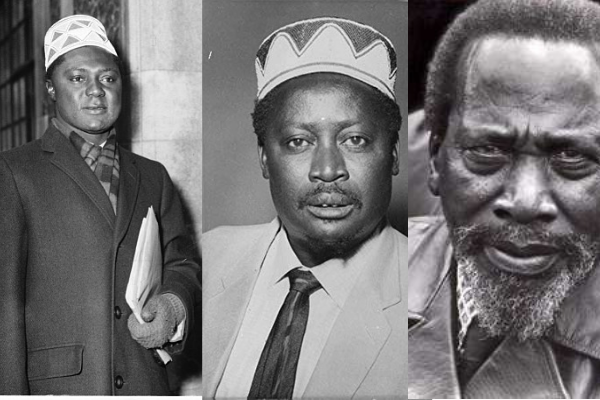In Nigeria among the Igbo people there is a saying;
“When two brothers fight to the death it is the stranger who inherits the land”
This saying reflects the wisdom of the African elders on the dangers of disunity. It is meant to encourage unity among tribes. It is believed that the disunity among Africans led to colonialism and the subjugation of Africans across the continent. Valuable and fertile land was lost by African into the hands of foreigners under colonial rule.
The land in Kenya land was the reason that the Mau Mau launched a rebellion against the colonialists. The British colonialists had taken all the fertile land of the Rift Valley. Africans were relegated into concentration camps that were known as ‘reserves’. The reserves had the poorest land which produced little yield and guaranteed starvation for the African people.
Of course the leader of the Mau Mau was believed to be Jomo Kenyatta. Kenyatta was arrested for demanding land rights which had been owned by Kenyans and deemed as a birthright. The hand writing was already on the wall and the British knew they had to relinquish political power but held onto economic power. The colonialist had no intention of returning the land they had had stolen when they displaced the Kenyan people. It was time for them to give up the land that they had stolen.
In 1960, Africans came together and formed a political party the known as Kenya African National Union (KANU). One of the founding fathers of this political party was Tom Mboya and Oginga Odinga who belonged to Luo tribe. The other founders were of course Jomo Kenyatta who belonged to the Kikuyu tribe. Kenyans have always been very tribal people divided among tribal lines. KANU was formed to ensure representation from the major tribes. The smaller tribes fearing that they would be cut off from Kikuyu and Lou domination also formed their own opposition parties. One of these opposition parties was known as the Kenya African Democratic Union KADU and represented the smaller tribes.
In 1963, prior to an election which was scheduled in May of 1963, KANU won that election. As part of ethnic balancing Odinga from Luo tribe became Vice President. After a lot of political negotiations KANU eventually merged with KADU. Odinga was very much to the political left. Odinga advocated a ceiling on the amount of land that could be owned by any 1 individual to 500 acres. At this point in history most Africans in Kenya were landless. The idea of giving landless Africans back their land this unsettled a lot of the colonial farmers and the KANU elites who they had themselves began to accumulate a lot of land under colonial laws.
Oginga Odinga became very much disillusioned with the KANU government. He was disappointed because he felt that the KANU government had abandoned principles that had brought them to power. As a result of this criticism Odinga leveled against KANU fought back to preserve their new land and subsequent wealth that came from politics. This was the beginning of the polipreneurship social class in Kenya. Polipreneurs are people who get business advantages due to their political connections.
In 1969, KANU assassinated the Luo leader Tom Mboya and they kicked out Odinga from the party and that is how divisions continued in Kenya and eventually led to a one party rule under Daniel Arap Moi.




